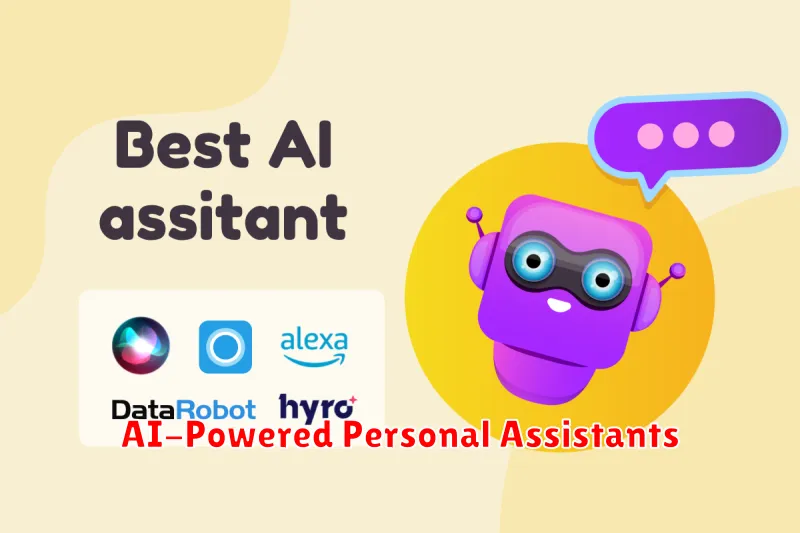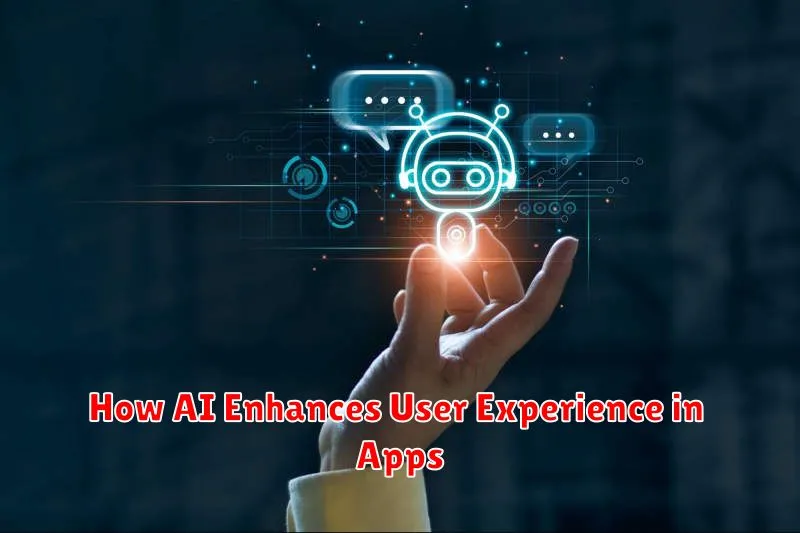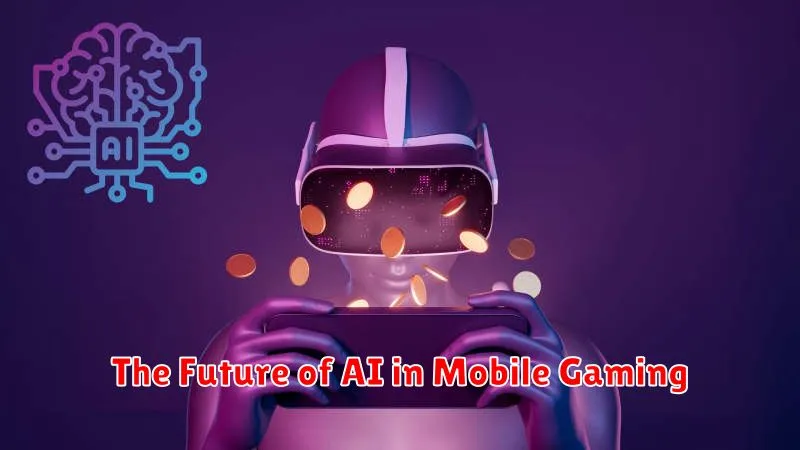The world of mobile applications is constantly evolving, with new innovations and features emerging at a rapid pace. At the heart of this revolution is artificial intelligence (AI), which is transforming the way we design, develop, and interact with mobile apps. From personalized recommendations to advanced voice assistants, AI is seamlessly integrating into our daily lives, making our mobile experiences more intuitive, efficient, and engaging than ever before.
The impact of AI on mobile apps extends far beyond mere convenience. It is driving transformative changes across various industries, revolutionizing healthcare, finance, education, and more. By harnessing the power of AI, developers are creating intelligent mobile solutions that address complex challenges, enhance user experiences, and empower individuals in unprecedented ways. This article delves into the fascinating world of AI-powered mobile apps, exploring how this technology is reshaping the way we live, work, and interact with the world around us.
AI-Powered Personal Assistants

The rise of AI has significantly impacted mobile apps, particularly with the development of AI-powered personal assistants. These intelligent assistants have become indispensable in our daily lives, streamlining tasks and making our experiences more efficient and personalized.
One of the key features of AI-powered assistants is their ability to understand and respond to natural language. Users can interact with these assistants through voice commands or text input, making it convenient to set reminders, send messages, search for information, and much more.
Moreover, AI assistants learn from user behavior and preferences, personalizing recommendations and offering tailored suggestions. They can predict needs, anticipate requests, and even proactively offer solutions, enhancing the user experience.
Beyond everyday tasks, AI assistants are also transforming industries. In healthcare, they help doctors diagnose illnesses and recommend treatments. In finance, they assist with financial planning and investment management. The possibilities are vast and continue to expand as AI technology advances.
The Impact of AI on Mobile App Development
Artificial intelligence (AI) is rapidly transforming various industries, and mobile app development is no exception. AI’s influence on app development is multifaceted, leading to more intelligent, personalized, and efficient applications that enhance user experiences and streamline development processes.
One of the most significant impacts of AI is the rise of intelligent user interfaces (UI). AI-powered chatbots and virtual assistants are becoming increasingly common in apps, providing users with instant support, personalized recommendations, and intuitive interactions. These AI-driven interfaces are not only user-friendly but also enable developers to gather valuable user data for app optimization.
AI also plays a crucial role in app development automation. Machine learning algorithms can analyze vast amounts of data to identify patterns and predict user behavior, enabling developers to automate tasks such as code generation, testing, and bug detection. This automation streamlines development workflows, reduces time-to-market, and allows developers to focus on more creative and strategic aspects of app development.
Furthermore, AI is driving personalized app experiences. By leveraging user data and AI algorithms, apps can tailor content, features, and recommendations to individual users’ preferences and needs. This personalization enhances user engagement, increases app stickiness, and provides a more relevant and valuable experience.
The impact of AI on mobile app development is undeniable. From intelligent UIs to app development automation and personalized experiences, AI is revolutionizing the way apps are created and consumed. As AI technology continues to advance, we can expect even more innovative and transformative mobile applications that enhance our daily lives in profound ways.
How AI Enhances User Experience in Apps

Artificial intelligence (AI) is rapidly transforming the mobile app landscape, revolutionizing how we interact with technology and enhancing our daily lives. One of the most significant impacts of AI is its ability to enhance the user experience in apps, making them more intuitive, personalized, and engaging.
AI-powered personalization is a key driver of improved user experience. Apps can leverage user data, such as browsing history, preferences, and location, to tailor content, recommendations, and features to individual needs. This personalized approach not only makes apps more relevant but also fosters a sense of connection and engagement.
AI-powered chatbots are transforming customer support in mobile apps. These intelligent assistants can answer frequently asked questions, provide guidance, and resolve issues quickly and efficiently. By automating these tasks, chatbots free up human agents to focus on more complex problems, improving response times and customer satisfaction.
AI is also improving the usability of mobile apps. For example, AI-powered voice assistants enable users to control apps hands-free, making them more accessible and convenient. AI-driven image recognition can be used to analyze images within apps, providing valuable insights and enhancing user interactions.
Moreover, AI algorithms can analyze user behavior to predict needs and offer proactive assistance. For instance, an app could suggest relevant features based on user activity or provide timely notifications to remind them of upcoming appointments. These proactive features streamline user workflows and enhance overall app functionality.
In conclusion, AI is playing a pivotal role in enhancing user experience in mobile apps. By personalizing content, automating tasks, improving usability, and predicting needs, AI is making apps more intuitive, engaging, and valuable for users. As AI technology continues to advance, we can expect even more innovative and user-centric mobile app experiences in the future.
AI in Health and Fitness Apps
Artificial intelligence (AI) is rapidly transforming how we live, work, and interact with the world around us. One of the most significant impacts of AI is being felt in the mobile app industry, particularly in the realm of health and fitness. AI-powered apps are revolutionizing how we manage our well-being, providing personalized insights, and empowering us to make healthier choices.
AI algorithms are being used to analyze vast amounts of data from fitness trackers, smartwatches, and other wearable devices. This data can be used to create personalized fitness plans, track progress, and provide real-time feedback. For example, an AI-powered fitness app can analyze your workout history, sleep patterns, and heart rate data to suggest exercises that are tailored to your individual needs and goals.
AI is also playing a crucial role in nutrition tracking and meal planning. Apps can analyze your dietary habits and provide personalized recommendations for healthy meals. Some apps even offer AI-powered grocery shopping lists that are tailored to your nutritional needs. This can help you make informed food choices and ensure that you’re getting the nutrients you need.
Beyond fitness and nutrition, AI is also being used to enhance mental health apps. AI-powered chatbots can provide support and guidance for people struggling with anxiety, depression, and other mental health conditions. These chatbots can offer personalized therapy sessions, track mood changes, and provide resources for seeking professional help.
The integration of AI in health and fitness apps is not without its challenges. Privacy concerns, data security, and the potential for bias in algorithms are all issues that need to be addressed. However, the potential benefits of AI in this field are undeniable. AI-powered apps have the power to make us healthier, happier, and more informed about our well-being.
Security and Privacy Concerns with AI-Powered Apps
While AI-powered apps offer numerous benefits, they also raise significant security and privacy concerns. These apps often require access to vast amounts of personal data, including location, contacts, browsing history, and even biometric information. This data is then processed by AI algorithms, which can be vulnerable to hacking or misuse.
One major concern is the potential for data breaches. If an AI-powered app is compromised, attackers could gain access to sensitive personal information, which could be used for identity theft, financial fraud, or other malicious purposes. Another concern is privacy violations. AI algorithms can be used to analyze and interpret data in ways that were not originally intended, potentially revealing personal information that users did not want to share.
Furthermore, the use of AI in mobile apps raises questions about algorithmic bias. AI algorithms are trained on massive datasets, which may contain biases that reflect the prejudices of the real world. This can lead to discriminatory outcomes, such as loan denials or hiring decisions based on biased algorithms. Ultimately, the use of AI in mobile apps requires careful consideration of the potential risks to security and privacy.
The Future of AI in Mobile Gaming

The integration of Artificial Intelligence (AI) is rapidly transforming the mobile gaming landscape, ushering in a new era of immersive and personalized experiences. From enhancing game mechanics to crafting intelligent opponents, AI is revolutionizing how we play and interact with mobile games.
One of the most significant impacts of AI is in creating more realistic and challenging gameplay. AI-powered game characters can now adapt to player strategies, learn from past interactions, and exhibit more human-like behavior. This leads to more engaging and unpredictable experiences, where every encounter feels fresh and rewarding.
AI is also driving innovation in game design, enabling developers to create more dynamic and interactive environments. AI algorithms can analyze player behavior and preferences, providing insights that shape the game’s progression, difficulty, and rewards. This personalized approach caters to individual player needs, fostering a sense of ownership and deeper immersion.
The future of AI in mobile gaming is brimming with possibilities. As AI technology continues to advance, we can expect to see:
- Hyper-realistic graphics and animations, blurring the lines between virtual and reality.
- Personalized storylines and quests, tailored to individual player choices and preferences.
- Intelligent NPCs, capable of complex interactions and conversations that feel more human-like.
- Adaptive difficulty levels, ensuring a balanced and challenging experience for players of all skill levels.
- Enhanced esports experiences, with AI-powered analysis and prediction tools.
As the boundaries between reality and virtual worlds continue to blur, AI will play a pivotal role in shaping the future of mobile gaming, offering unprecedented levels of engagement, personalization, and entertainment.

